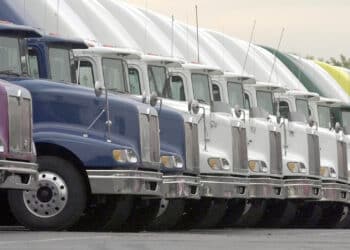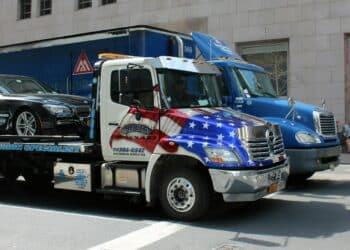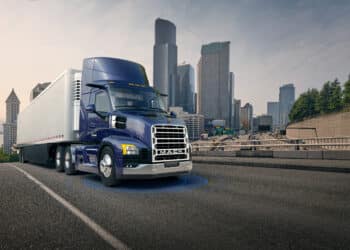The EV truck market has lost steam under President Donald Trump, but OEMs are optimistic as they work to deliver practical solutions for fleet owners and meet sustainability goals.
A federal rule finalized in March 2024 mandated increased production of zero-emission vehicles starting in model year 2027, with EVs possibly accounting for 60% of new medium- and light-duty truck sales by 2032 under the rule, according to the Institute of Energy Research.
However, Trump’s efforts to remove EV mandates and incentives have cast uncertainty over the EV truck market in the United States, which had already been grappling with minimal adoption due to inadequate charging infrastructure and higher upfront costs.
Despite this, OEMs are “still bullish” about the commercial EV market as they find best use cases to reduce total cost of ownership, Dave Sowers, director of operations at Ram Professional, told Equipment Finance News last week during Work Truck Week in Indianapolis.
“We know there are still customers out there that desire to have zero emissions but also need to meet their cost of ownership goals,” he said. “And the van space is still a good space for that, because many of those vehicles operate in a defined geography and return to a central location at night. So, we’re not talking about interstate delivery or anything like that.”
Even with short-haul transportation, which is generally more feasible for EVs, extending the range is crucial to higher adoption rates, Sowers said. Ram Pro plans to launch a charging solution with an onboard gas-powered generator this year to help eliminate inconvenient recharging during a job.
“For a lot of commercial customers, it’s going to be ideal where they’re going to be able to conduct their daily business as an all-electric vehicle,” he said. “But when they have those occasional demands to travel further distances… they don’t have to worry about the range that happens there because the gas-power generator will kick in when necessary to recharge the battery and enable them to return to their terminal.”
Targeting pockets of EV growth
Seventeen states have adopted at least some of the California Air Resources Board’s emissions standards for light-duty vehicles, and 10 states have adopted mandates for heavy-duty vehicles, according to CARB’s website.
Targeting states that are supporting the clean-energy transition is one way for EV makers to succeed during this period of minimal federal support, Jim Connelly, chief revenue officer at Oak Park, Mich.-based Bollinger Motors, told EFN at the event.
“If you look at the states that have those goals, those are the ones that are pushing incentives,” he said.
“They have incentives that we are trying to target. … So, in the midst of some of this, there are positives on the state level. And then if you look at some of the large companies, regardless of what mandates and stuff are going out, they all have their own internal sustainability goals and targets that they want for their own company.”
— Jim Connelly, chief revenue officer, Bollinger Motors
Forming utility partners
There were more than 192,000 publicly available charging ports in the U.S. as of August, more than double the number that existed in January 2021, according to the Federal Highway Administration. Still, the U.S. needs roughly 1 million additional charging ports by 2030 to support EVs, according to the National Renewable Energy Laboratory.
To keep the EV truck market afloat during Trump’s presidency, OEMs must form strong partnerships with the charging infrastructure providers, Jim Castelaz, founder and chief technology officer at Foster City, Calif.-based Motiv Electric Trucks, told EFN at the event.
“I think the utility is always a key partner,” he said. “Involve them early if you’re going to deploy electric trucks, make sure you know what the infrastructure build is going to be and then as the OEM, keep us involved too. … That always needs to be a close partnership to establish the best practice between the charge station provider, the vehicle provider, and the fleet.”
The third annual Equipment Finance Connect at the JW Marriott Nashville on May 14-15, 2025, is the only event for both equipment dealers and finance providers. Learn more and register here.









